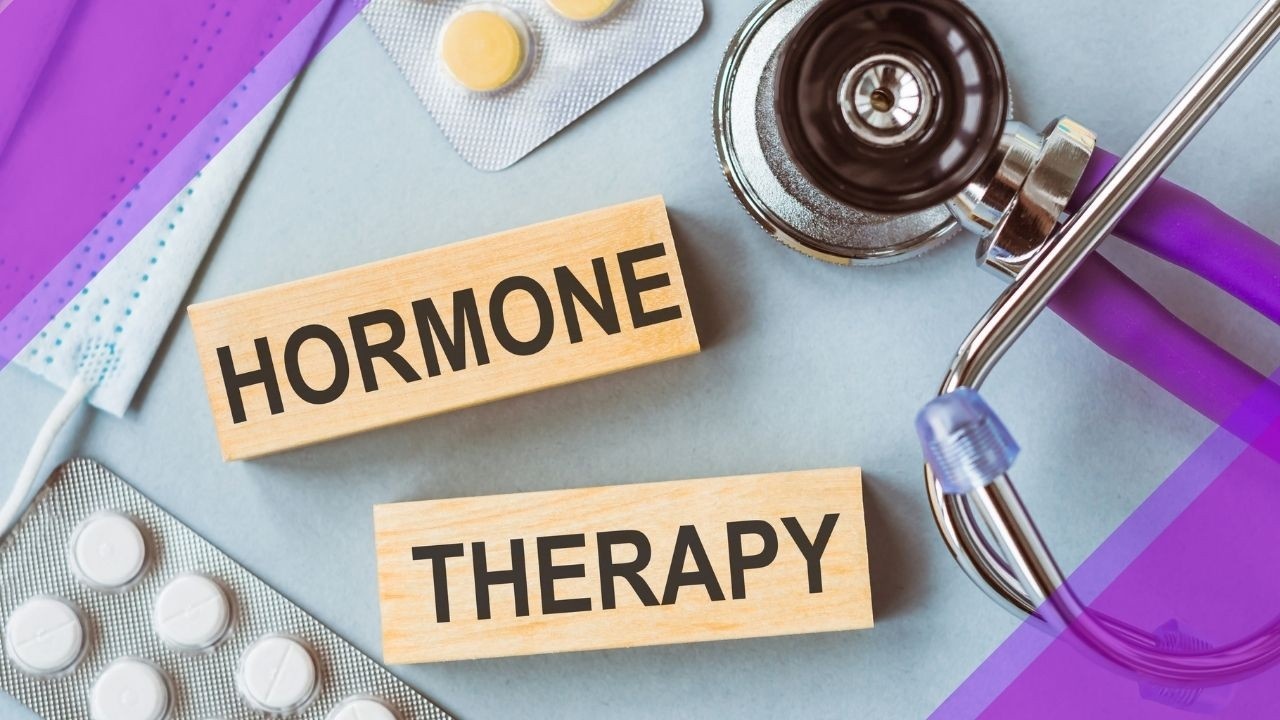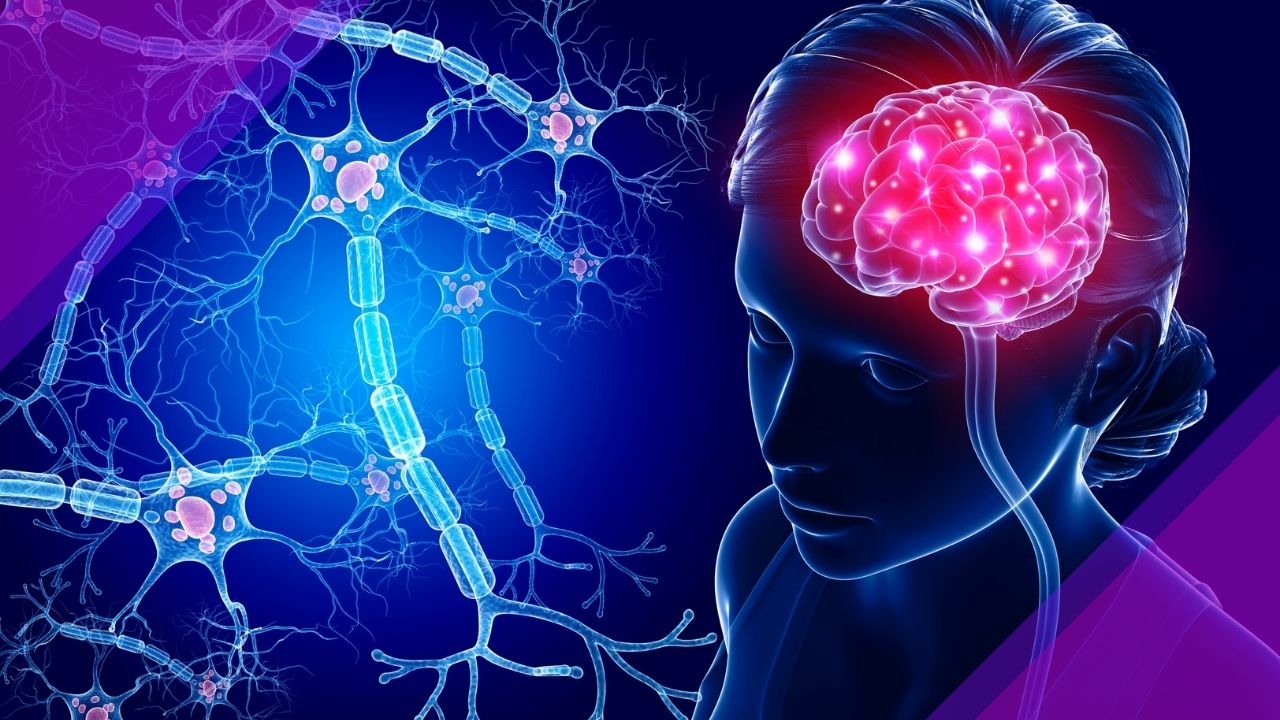
Does Every Menopausal Woman Need Hormone Therapy?
Apr 20, 2022Hormone therapy can be a lifesaver for some. Others don’t want it, need it, or can’t take it. Whatever our path, we're not deficient.
By Selene Yeager
When we first started Feisty Menopause in 2020, many women were still afraid to take menopausal hormone therapy (MHT) because we’d been told it could cause breast cancer (there are still concerns, but those original studies have since been revisited). Now, not two years later, many women are afraid to not take MHT because they’re hearing that they can’t age well without it. Whiplash anyone?
There’s a lot of talk right now about rebranding menopause as female hormone deficiency. This is because the fluctuating and eventual flatlining of our sex hormones, particularly estrogen and progesterone, results in the symptoms like hot flashes, brain fog, and sleepless nights associated with menopause, which can make some women’s lives pretty miserable, especially in the transitionary period of perimenopause. Women’s risks for certain diseases, like heart disease, also can rise as estrogen declines.
But you won’t hear us calling menopause a “deficiency” anytime soon (or ever). Menopause is a stage of life. Our hormones change over the course of life from puberty when we sprout breasts seemingly overnight, through our menstruating years, during pregnancy if we have children, and eventually in peri and postmenopause when our reproductive stage of life comes to a close.
“Just as a runner cannot expect that she will run her fastest time at 50 compared to when she was 30, women can’t naturally have babies at 55 as they could at 30,” says Carla DiGirolamo, M.D., Ph.D., who is a double board-certified reproductive endocrinologist and obstetrician/gynecologist specializing in infertility and menopausal medicine. “We are in a different stage of life where our reproductive hormones are not going to be where they were during our reproductive years. We are not broken. That’s not to say that there aren’t benefits to hormone therapy for menopausal women, but it’s not to ‘fix’ them or turn back time; it’s to mitigate some of the effects/symptoms of the changing hormonal environment.”
Hormone therapy absolutely can play a valuable role in some women’s menopause transition and beyond. We’ve heard from women in our Feisty Menopause groups and on the Hit Play Not Pause podcast whose lives were turned around for the better when they found a doctor to work with them and prescribe MHT.
But we’re not “deficient” without it. We’ve also heard from women who are thriving through and beyond menopause without MHT. Hit Play Not Pause guest Kirsten Lewis recently won her age group in sprint and Olympic distance triathlons, ran her fastest 5K, and feels happier and healthier than ever at age 57, post-menopause, without hormones.
It’s also worth noting that not all women can take hormone therapy and some women don’t do well on it. Though many women enjoy positive outcomes, we’ve heard from women who have experienced terribly dark moods or unwanted body composition changes after starting MHT, which is the opposite of what they’re looking for.
MHT Does Not Return You to a Premenopausal State
This isn’t the first time we’ve heard menopause described as a medical “deficiency” or the first time we’ve been told that our future is bleak if we remain hormone deficient after menopause. In 1966, Dr. Robert Wilson wrote a best-selling book called Feminine Forever, where he called menopause an estrogen-deficiency disease and posited that estrogen replacement therapy was the only way to prevent an otherwise inevitable “living decay.”
What gets lost in the conversation is that MHT is not the fountain of youth. Hormone therapy does not take you back to a premenopausal state. You have not “replaced” the hormonal environment you had before you entered the menopause transition (which is why the The Menopause Society simply refers to it as hormone therapy and other literature calls it MHT rather than hormone “replacement” therapy or HRT). “The hormones prescribed in HT are only one part of a much larger picture and are not processed and metabolized in the exact same way as our native hormones,” DiGirolamo says. “The ability of our tissues to respond to hormones also declines, even in the presence of hormone therapy due to a reduction in estrogen receptors. If there are no receptors, the hormone signal isn’t heard.” (She explains this in more depth in her blog.)
When it comes to performance and body composition, MHT (in the form of estrogen therapy) actually impaired fat loss in a study of women on a progressive strength training program taking either hormone therapy or a placebo. The women taking the placebo lost more total fat, visceral fat, and subcutaneous leg fat during the 12 week program, though the women taking estrogen improved metabolic markers like LDL cholesterol and blood glucose better than the placebo group. Again, it’s complex.
MHT and Short and Long-term Health
It’s well established that MHT is very helpful for alleviating symptoms, especially hot flashes and night sweats. It can provide relief from the musculoskeletal pain that can arise during menopause. We hear from many members who find hormone therapy reduces their anxiety. Some sleep better. Vaginal estrogen is great for genitourinary syndrome of menopause (GSM). There’s not much debate over hormone therapy for symptom management.
What some women are now wondering is if, even if they have their symptoms under control, they need to take MHT to fend off chronic diseases, like heart disease, dementia, and osteoporosis. The answers right now are “it depends”.
One area that is clear is bone health. MHT is an approved therapy for the prevention of osteoporosis in postmenopausal women. It reduces bone loss, increases bone density, and reduces the risk of fracture. So if you’re at increased risk for osteoporosis and/or have low bone density, it is well worth exploring MHT.
Other long-term health discussions are more complicated in no small part because there is no one standard form of MHT, and the effects it has depend on how old you are, your physiology, the stage of the menopause transition you’re in, what hormones you’re taking, what types of hormones you’re taking, and what form you’re taking them in. When poring through the latest medical literature, it’s clear that research is still trying to catch up, particularly in heart and brain health.
MHT and Heart Health
Heart health looks promising, but the timing is important. Starting MHT within 10 years of menopause or before age 60 is important. A 2020 study published in The Journal of Menopausal Medicine stated, “For women who started the therapy within 10 years of reaching menopause, there was a trend toward reduced risk, whereas for women who started the therapy more than 20 years after reaching menopause, the risk significantly increased.” (Dr. Avrum Bluming explains this phenomenon very well in the Hit Play Not Pause episode Estrogen Matters.)
A more recent study published in The Journal of Clinical Endocrinology & Metabolism concluded, “Although HT continues to have an important role in menopause management, it is not recommended for primary or secondary CVD [cardiovascular disease] prevention. Different formulations, doses, and routes of delivery of HT have different effects on cardiometabolic markers and risks of clinical CVD events.”
The “good” thing about heart disease is that you can work with your doctor to get an assessment of your risk based on your blood pressure, lipids, and other cardiovascular risk screenings. Then you can work together to see how MHT fits into your personal heart health picture.
MHT and Brain Health
There’s a lot of ongoing compelling research on brain health, menopause, and hormone therapy, but it’s not yet conclusive. A 2021 study of insurance claim data from more than 379,000 women published in Alzheimer’s & Dementia: Translational Research & Clinical Interventions reported that hormone therapy was associated with a reduced risk of all neurodegenerative diseases, including Alzheimer’s and dementia, with greater duration of therapy and natural steroid formulations having the best benefits.

On the flip side, a study that analyzed health data on more than 118,000 women published in BMJ also in 2021 found a decreased risk of dementia for women younger than 80 years at diagnosis who had been taking estrogen-only therapy for 10 years or more. But, a subgroup analysis of cases of Alzheimer’s disease showed a small increase in risk associated with estrogen-progestogen therapy, which rose with each year of exposure, reaching an average risk increase of 11% for between five and nine years of use and 19% for 10 years or more.
Dr. Lisa Mosconi, associate professor of neuroscience in neurology and in radiology, and director of the Women's Brain Initiative at Weill Cornell Medicine, is doing groundbreaking work using brain scan technology in this area. Her study from last year shows that when estrogen declines in perimenopause, the brain goes through some structural and metabolic changes. But, it also adapts, and for most women returns to structure and function levels similar to premenopause once they enter postmenopause. That “most” part is important, of course, and this research is something we need more of and is something to follow.
As with heart disease, if you have a personal risk of dementia and/or are concerned, it’s worth a conversation with your doctor to investigate MHT. Also like heart disease, starting MHT before age 60 or in that 10 year window around menopause appears to be important for brain health as well. (Dr. Sarah McKay addresses this in the Hit Play Not Pause episode This is Your Brain on Menopause.)
There’s Much More to Learn About MHT
This just scratches the surface of the research into hormone therapy and health. MHT may help lower risks of other diseases like colorectal cancer. There are factors to consider, including your personal risk of breast cancer and blood clots. If you want a dive into the research that’s been done on everything from gallbladder disease to stroke, The 2020 Menopausal Hormone Therapy Guidelines is a good place to start.
Whether or not you opt for MHT, there are lifestyle interventions that can help mitigate the effects of your changing hormonal environment. Some women successfully manage anxiety with adaptogens. Creatine can help with brain fog. All the exercise, nutrition, and stress-management techniques we talk about in the Hit Play Not Pause podcast and Feisty Menopause blog can help keep your body and brain healthy and strong.
Our hope is that research continues on all the forms and formulations of hormone therapy and that women have the information and access to the care they need, whatever that entails, without having to rebrand menopause as a deficiency disorder we all suffer from. It's a stage of our lives as women and we're all going to take that journey differently, just as we did through puberty and our reproductive years. And we can certainly all support each other through this process no matter what choices we make.
Get Feisty 40+ in Your Inbox
We hate SPAM. We will never sell your information, for any reason or send you emails that suck!


